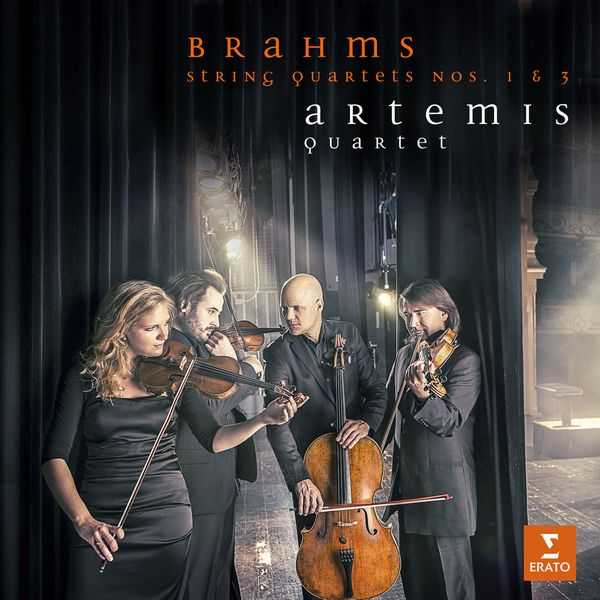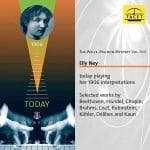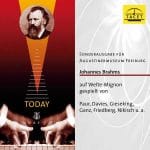

Composer: Johannes Brahms
Performer: Artemis Quartet
Format: FLAC (tracks)
Label: Erato
Catalogue: 2564612663
Release: 2015
Size: 1.17 GB
Recovery: +3%
Scan: yes
String Quartet No. 1 in C minor, Op. 51 No. 1
01. I. Allegro
02. II. Romanze – Poco adagio
03. III. Allegretto molto moderato e comodo
04. IV. Allegro
String Quartet No. 3 in B flat major, Op. 67
05. I. Vivace
06. II. Andante
07. III. Agitato (Allegretto non troppo) – Trio – Coda
08. IV. Poco Allegretto con Variazioni
The Artemis Quartet pairs Brahms’ intense first quartet with his lighter-spirited third quartet, both works that the Artemis’ cellist, Eckart Runge, describes as “remarkable and multi-faceted”. He says that “Brahms marries a Romantic spirit with the structure and forms of Classicism. There is an almost symphonic approach in the writing, but at the same time the quartets are imbued with a sense of warmth, immediacy, friendship and love that is interwoven with a more spiritual, timeless beauty”.
Ever aware of the shadow of Beethoven, Brahms was 40 years old by the time he completed the first of his three published string quartets (op 51, No 1) in 1873; he is thought to have destroyed the 20 or so quartets that he had written previously. The third quartet (op 67) followed in 1875, the year before the premiere of the composer’s Symphony No 1, and a decade after the publication of his piano quintet, which the Artemis Quartet has recorded with Leif Ove Andsnes (Erato, 0094639514328).
“Brahms wrote three remarkable, multi-faceted quartets and we have recorded the first and third here,” continues Runge. “They were long considered to be quite conservative because their structure and thematic workings are in the tradition of Beethoven, but no less an innovator than Schoenberg called Brahms a ‘revolutionary traditionalist’ and saw these quartets as modern in their conception.
“These quartets are fantastic – full of ideas, contrasts and emotion. They are challenging to play – especially No 1 – because there is so much thematic material … there is nothing in there that is not important. As players, you have to work out all the material, and the musical structure is deep and complex, while the textures can become dense with Brahms’ characteristic use of polyrhythms … But at the same time you need to maintain transparency so that the audience can readily appreciate what it is hearing. This might be intellectual music, but its beauty should still give you goose bumps!
“The quartet No 3 doesn’t have the same dramatic weight as No 1 – it is characterised by a certain lightness and playfulness and is perhaps less ambitiously conceived than quartets No 1 and No 2 … maybe, by this point, Brahms was less preoccupied with showing the world that he could cope with Beethoven! It’s gentler and more easy-going. Perhaps you could say that it feels more like a late composition. But there are some astonishing things going on … the Mozartian opening theme; the way the first movement is quoted in the last movement; the prominence given to the viola in the third movement. The work’s basic character is friendly, but it has lots of interesting, audacious ideas.
“In all this, Brahms marries a Romantic spirit with the structure and forms of Classicism. There is an almost symphonic approach in the writing, but at the same time the quartets remain concise … and imbued with a sense of warmth, immediacy, friendship and love – a feeling of Gemütlichkeit – that is interwoven and combined with a more spiritual, timeless beauty. There’s an eternity of line in the slow movements. It is music that embraces you, but it also music that has a higher perspective and which feels very complete.”



